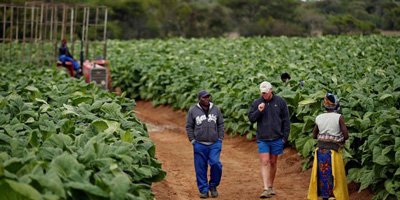
UN turns 67
At the UN’s birthday celebrationis, local musician, Gazza gave a motivational speech and was joined on stage by Windhoek learners. (Photograph by Hilma Hashange).UN celebrates 22 years in Namibia
Namibians this week joined the rest of the world to observe the 67th year since the United Nations Charter came into effect. The day, globally known as the UN Day was celebrated at the Habitat Research Centre, Katutura and was attended by Prime Minister, Nahas Angula.
According to UN Resident Coordinator, Musinga Bandora, the day not only marks the founding of the United Nations, it is also a celebration of 22 years of UN presence in a free Namibia.
He said, the day is an opportunity for all citizens of the world to reflect on the United Nations, the principles and values of its Charter, the progress it is making in delivering peace and security, in promoting and protecting human rights, in supporting countries deliver development and advancing international cooperation. It is a day for reflection and rededication to the cause of the UN and to resolve to do more in the service of humanity.
“The year 2011 has so far been marked by major developments, we live in a world that is fast globalising. Technology is shrinking the world. Unfortunately, the technologies that are taking mankind to new frontiers of science are still not available to address the basic needs of the larger part of humanity, the need of food, of shelter, of health and education. Poverty, ignorance and disease continue to afflict the larger part of humanity. Peace still elude many especially in Africa with consequences of continued suffering of innocent people, of abuse of human rights and of lost opportunities for development,” he said.
He commended the Namibian Government for its efforts to address challenges which include abuse of human rights, political intolerance and gender inequality by providing critical services such as health, education, water and sanitation.
“We also note steady efforts to address extreme poverty through income and job generating programmes, to consolidate democracy, to promote transparency and accountability through tackling corruption as well as safeguarding press freedom. We know that challenges exist but we note the disposition and the will of government to pursue reforms that promote equality,” he said.
He said the UN has also noted the government’s commitment to gender equality and it [the UN] is encouraged that this has found concrete expression in the approval of the revised National Gender Policy which was launched by President Pohamba earlier in the year.
“The gender policy provides a vision, strategies and programmes for achieving gender equality through addressing structural and legal inequalities between men and women. Achieving gender equality is not only a key development goal in its own right, it is an important means to achieving all other MDGs,” he added.











































